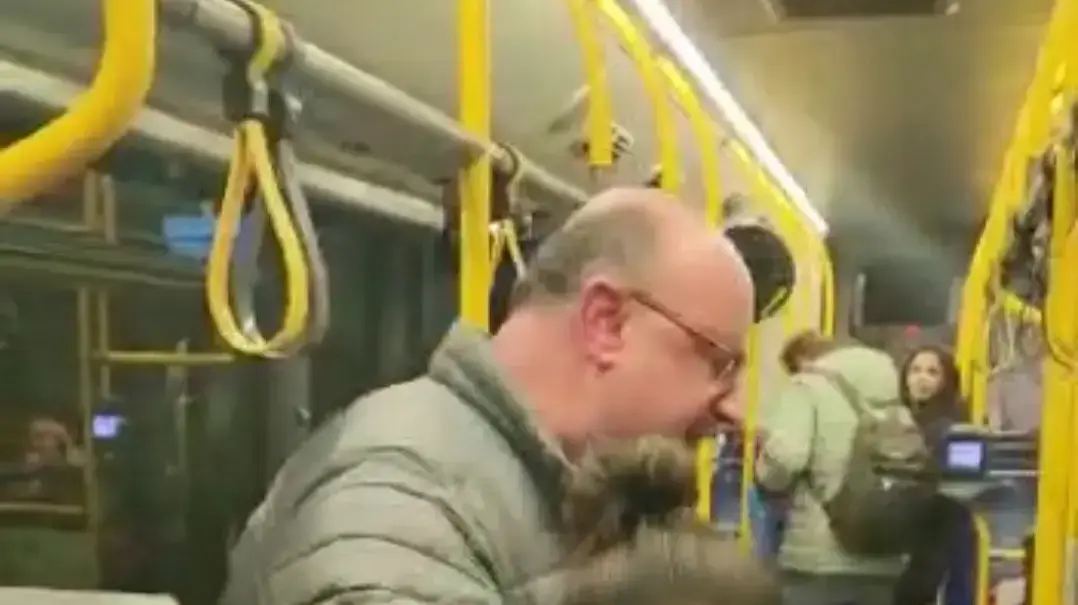Million injection for bus companies
Created: 07/27/2022, 06:45 am
By: Stefanie Zipfer
When bus companies go bankrupt, the Dachau district has a problem.
© Photographer: Andrea Jaksch
The fuel prices, which have been rising rapidly since February, are massively affecting the bus companies in the district.
In order to secure school transport, the district council has now even approved special payments to the endangered industry: 2.4 million euros in 2022.
Dachau – Aren't fuel prices part of the entrepreneurial risk of a bus operator?
Couldn't a bus company's difficulties also have other reasons than the currently exorbitantly high fuel prices, for example because the company managed poorly?
And aren't other sectors doing badly at the moment?
Those responsible for the district administration and the members of the district council had to answer yes to all these questions last Friday.
And yet in the end they came to the conclusion that there was “basically no alternative” to a special payment for the MVV regional and school bus services.
The committee therefore made up to 2.4 million euros available to secure public transport for the year 2022 alone.
Unanimously.
The reason: the Ukraine war was not foreseeable for any transport company.
And it is unlikely that fuel prices will drop in the foreseeable future.
On the contrary: If the fuel price brake, which is ineffective anyway, expires on September 1st, according to district office department head Albert Herbst, a further increase in fuel costs can even be expected.
And should this lead to bus companies going bankrupt, then, according to Herbst, “we have a huge problem.
We have a school transport obligation for around 5000 schoolchildren”!
The so-called special payments, which he proposed to support bus operators, should therefore be non-contractual, without acknowledgment of a legal obligation, revocable at any time and limited in time to March 2023.
2.4 million euros are "of course a lot of money" and a "purely voluntary service".
But, according to Herbst: "We have to intervene financially!" Especially since state aid from the federal and state governments for the transport companies is not to be expected in this case.
According to District Administrator Stefan Löwl, the money will “even tend to be less”.
Löwl saw the special payments as "not a nice thing".
But something else is causing him even more concern when it comes to bus transport: “The bus drivers.
It looks a lot worse there.” The market has been swept empty.
The combination of skyrocketing fuel prices and a shortage of skilled workers has already caused “massive problems” in the Starnberg district, for example.
Criticism of the special payments came only from Sebastian Leiß (Free Voters Dachau).
Despite all the necessity, two and a half million euros are simply "a huge sum" that has to be financed by the municipalities via the district levy.
"We can't do this every year," he warned.
If you consider that many district councilors would even call for an expansion of bus transport in the city and district, he gets scared: "At some point that will blow up our district budget!"
The problems of the school bus companies, whose vehicles run on diesel, are still small compared to what the city of Dachau could face.
Because: After a long discussion and against the will of the mayor, a majority of SPD, Greens and Alliance for Dachau two years ago pushed through a ten-minute interval on the city bus lines in December 2020 (we reported).
For environmental reasons, the new buses required for this should be operated with natural gas.
Even then, this solution was expensive.
It could get even more expensive next year.
As Cornelia Scheyerl, spokeswoman for Stadtwerke Dachau, explains, “in 2022 we will still be operating relatively cheaply with our biomethane on the basis of the current natural gas supply contracts and the remuneration of the greenhouse gas reduction quotas”.
Nevertheless, the public utility company "of course dealt with the worst case", the worst case for which, according to Scheyerl, "the old diesel reserve buses are still available as a partial alternative to the natural gas buses".
also read
Stop the rumors about refugees
"Big banks should pay for their mistakes themselves"
The old bus fleet, she emphasizes, is not a 100 percent replacement: “We will not be able to completely replace the natural gas buses with the reserve diesel buses.
We are currently investigating how big the gap is and how it can be closed.” Scheyerl leaves open whether things will go as far as in Garmisch-Partenkirchen, where the municipal utilities are currently ordering diesel buses again after switching to natural gas buses in the past decade .
"There are currently no plans to purchase additional diesel buses," she explains.
In principle, emphasizes Scheyerl, the warning level 2 issued by the Federal Ministry of Economics still applies, according to which no state intervention in the gas market is planned.
The Federal Network Agency only intervenes as a "load distributor" in the emergency phase.
According to Scheyerl, it is "currently not known" how local public transport is classified as part of the critical infrastructure in the event of a gas emergency.








